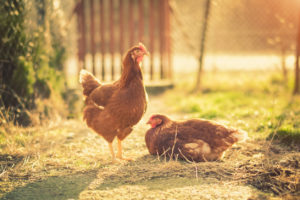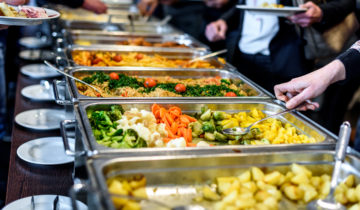A WHOLE INDUSTRY COMMITTED TO HIGH QUALITY EGGS
Eggs are a wonderful example of what an industry can do to enhance a product’s quality whilst meeting consumer expectations. In 2016, the French interprofessional egg association, Europe’s leading egg producer, launched an enormous project which gave rise to a “Societal Contract for the Future”. This announced the industry’s desire to adapt its farming methods to the major societal expectations which had already emerged very clearly pre-COVID. The goal was to have 50% of laying hens living on alternative farms by 2022.
Today, that ambitious gamble is paying off, with more than 1 in 2 hens in France at alternative farms (53%), two years ahead of schedule. Aviaries, organic and free-range have largely taken over from battery cages, despite the costs engendered by conversion. Thankfully, those efforts are appreciated by the general public, as revealed by a 2019 survey, in which 85% of the French population stated they would be prepared to pay more for alternative eggs**.
By 2022, organic egg production should also increase by 50%, and the number of Label Rouge laying hens should grow by 20%.
EXEMPLARY FARMS
Another objective set by the industry was the pursuit of actions in favour of animal welfare.
Although debeaking is still allowed for cage-free, free-range and organic chickens, as indicated by the organization CIWF (Compassion in World Farming), farmers are now prioritizing:
- perches (with at least 15 cm per bird)
- the presence of litter (dry and flaky) to encourage dust baths (which are necessary for the chickens to natural rid themselves of parasites)
- natural light
- the presence of at least four different pecking substrates (per 1,000 chickens).
All these actions are being implemented to produce Code 2 (cage-free) eggs from chickens raised in buildings with no cages. And the fact is that chickens have a natural need to explore, peck, perch, scratch the ground and interact with their fellow birds. Cocotine has decided to go a step further in its consideration of chickens’ needs and in improving their living conditions, with the creation of the “animal welfare cage-free eggs” range, which incorporates all those different parameters.

In addition, it is important to know that most French laying hens eat GMO-free feed and are treated without antibiotics (whenever possible). The industry is also setting up new tools to simplify the calculation of animal welfare metrics. A mobile app has been developed for farmers to use to take those measurements and is accompanied by a catalogue identifying suggestions for improvements.
Lastly, the Œufs de France (French Eggs) label is another hallmark of quality. It promotes the entire French egg industry, as a whole, from hatchery workers to egg packaging and processing companies, by way of farmers and feed manufacturers. Certified French Eggs are traced from the hatchery to the chicken farm, and all the animals’ movements are monitored, from the time they enter a building until the exit it. This approach is verified not only by self-checks but also by independent third parties. As a result, food safety and product provenance are fully guaranteed, in line with our changing society and diners’ expectations.
** CNPO/CSA 2019 study






